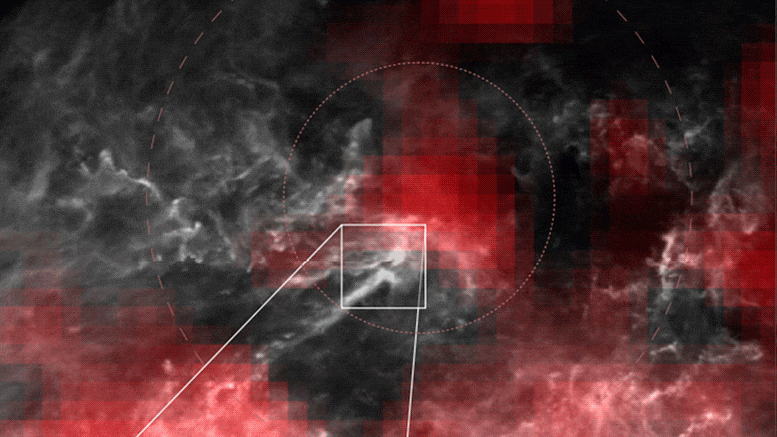The Ophiuchus star-forming complex offers an analog for the formation of the solar system, including the sources of elements found in primitive meteorites.
A region of active star formation in the constellation Ophiuchus is giving astronomers new insights into the conditions in which our own solar system was born. In particular, a new study of the Ophiuchus star-forming complex shows how our solar system may have become enriched with short-lived radioactive elements.
Evidence of this enrichment process has been around since the 1970s, when scientists studying certain mineral inclusions in meteorites concluded that they were pristine remnants of the infant solar system and contained the decay products of short-lived radionuclides. These radioactive elements could have been blown onto the nascent solar system by a nearby exploding star (a supernova) or by the strong stellar winds from a type of massive star known as a Wolf-Rayet star.
